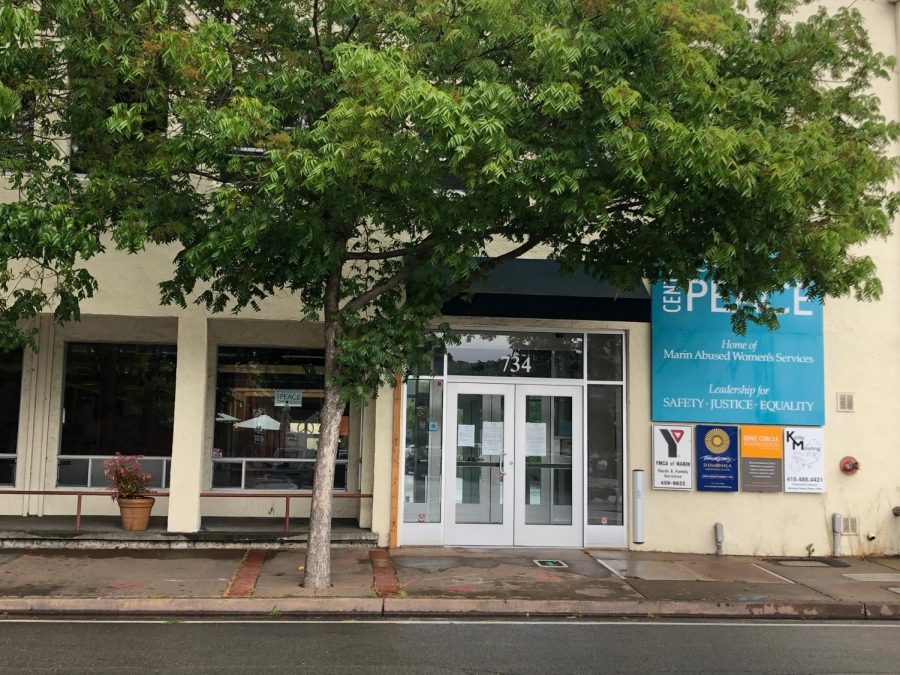Every day, Daisy fears her son might kill her. But she stays because she struggles with a lack of support from her family as well as love for him.
“He abuses me every day of my life, and it’s torture,” she said. “He’s not getting the help that he needs.”
She said she feels helpless and doesn’t know what to do. She doesn’t want to abandon her son, but she also needs to find a way to escape the constant abuse.
The Sacramento resident said she feels helpless and doesn’t know what to do. She doesn’t want to abandon her son amid the pandemic, but she also needs to find a way to escape the constant abuse.
“What am I supposed to do, put up with it? Let him beat the shit out of me and kill me this time? I’m stuck. I need him out, and I don’t know where to take him,” she said.
Unfortunately, Americans like Daisy are living in hell. Quarantine has brought with it a new world of isolation for victims, a key tactic used by abusers to control their victims. It’s easier now than ever before for a relationship to turn toxic.
Current quarantine orders have brought with them a 30% spike in domestic violence cases and with that spike, a new world of fear for victims and activists.
Daisy, who wished to remain anonymous, was married to an abuser for 22 years. With him, she had three children. She has been a survivor of his abuse since he first entered her life for the last 35 years ago.
“I continue to get abused by my ex-husband today. I divorced [him] 10–11 years ago. Why [is he] still attacking me?” she said.
However, now it’s her 20-year-old son who is abusing her, and due to shelter in place orders, she feels more trapped every day.
In December of 2018, her then 18-year-old son attacked her and was arrested for domestic violence. He spent four months in prison and was released, thanks in large part to his mom’s extensive effort. At every court hearing, she advocated for her son, despite the fact she was the victim of his battery.
She advocated for him before her bruises had healed.
“I know he can be better. He needs help, not time in prison,” she had said.
The judge decided to listen to the victim’s plea and release her son the day before his 19th birthday.
When her son turned 20, the abuse started again.
Meghan Kehoe has seen the impact the shelter-in-place orders have had on victims first hand as a manager at the Center for Domestic Peace in San Rafael.
“We have been getting calls from survivors saying that they want to leave their abuser and have their bags packed to leave but are unable to do so now because of the shelter-in-place order,” Kehoe said.
“We also know that isolation is a key tactic of domestic violence so having to remain isolated in a home without being able to reach out for help is a huge concern. The intensity of violence has increased in the cases that we are seeing and people’s lives are in jeopardy,” Kehoe said.
Daisy lacks support from family and feels trapped because she loves her son.
“As the victim, you feel like you can help them, and I can’t help him anymore,” she said. “I’m stuck between a rock and a hard place. He needs to go into a home and get help from a counselor, and it’s something he needs to commit to. But first, he needs to commit to himself and love himself, but he hates himself now.”
Every day, she wakes up worrying about both of their lives. “I’m starting to feel uncomfortable when I take showers, and I have to lock myself in my room at night,” she said.
For Daisy, she is looking forward to life after the pandemic so that she can find freedom.
“I need the gym; that’s my outlet,” Daisy said.
The pandemic has also had a large impact on domestic violence shelters due to the rise in domestic violence cases similar to Daisy’s.
Kehoe has worked in the field of domestic violence for 12 years, the past five at the Center for Domestic Peace, where she has had to evolve her practices to combat domestic violence during the current shelter-in-place order.
Kehoe’s division offers therapy programs for families and individuals, works with youth and young adult survivors at high schools and colleges and also runs all of the prevention and outreach programs for the agency.
“We expect to see a huge rise in calls to our hotline and all other program areas in the agency once the shelter in place order is lifted because survivors will finally be able to reach out without the abuser being in the same room or in the next room,” Kehoe said.
Since the quarantine, Center for Domestic Peace has had to change how they operate. Most of the staff now works from home, but everyone is still very busy.
“Our legal team is having to help survivors navigate the criminal and civil court systems that are letting people out of jail early because of fear of COVID, how to extend restraining orders without appearing in the presence of a judge and working with law enforcement who are on the front lines,” Kehoe said.
Center for Domestic Peace’s shelter is still open and taking in women who need shelter, but the shelter is communal living, so employees are trying to house as many women as possible in hotels so they are better able to shelter in place.
“Our therapy program has moved to having all of our sessions via phone, which is working well but having group therapy in person is so important to victims so they know they are not alone,” Kehoe said. She also said they are working on starting digital video support groups to help decrease victims’ feeling isolation.
Volunteers now answer the Center for Domestic Peace’s hotline remotely from home. “Our hotline team is bilingual and available 24/7 to answer calls from survivors,” Kehoe said.
Doris Martinez, a 19-year-old freshman at Cal Berkeley who used to volunteer with the Center for Domestic Peace, was a part of its Marin Against Youth Abuse (MAYA) program, where she learned a lot about domestic violence and how prevalent it is in the community, among all ages.
“Learning about domestic violence in MAYA and working with the Center for Domestic Peace made me realize how underfunded and overlooked domestic violence work and awareness is,” Martinez said.
The recent shelter-in-place orders have concerned Martinez because of what she knows of domestic violence. “When I heard of the lockdown one of the first things that comes to my mind was how this was going to affect victims in violent homes and in these situations. The rise in reported domestic violence cases was a foreseeable crisis,” she said.
Most domestic violence cases go unreported. “We have to be aware of the victims that are not reporting abuse or unable to report. The lack of funding and action is the government’s failure to prepare for this is worrisome,” Martinez said. “It’s imperative to have government assistance sooner rather than later.”
While domestic violence cases are on the rise during current quarantine orders, hope is not lost.
Law enforcement, activists, and nonprofits are still working hard to keep victims safe.
“It is great to see domestic violence be such a great concern for everyone right now due to the shelter-in-place orders, and it is my hope that we continue to keep this focus on those most vulnerable and in need of help at the forefront of our minds long past this pandemic,” Kehoe said. “Domestic violence is always an issue, pandemic or not, so I hope we can come together as a community, and as a nation to help bring awareness, services to survivors and ultimately end this crime.”
If you or anyone you know needs help during this time, please reach out to one of these resources:
Call 911 if you or someone you know are ever in immediate danger or if there’s an emergency.
The National Domestic Violence Hotline: 800-799-7233
Center for Domestic Peace 24/7 Hotline: 415-924-6616
Verity 24/7 Crisis Hotline: 707-545-7273




